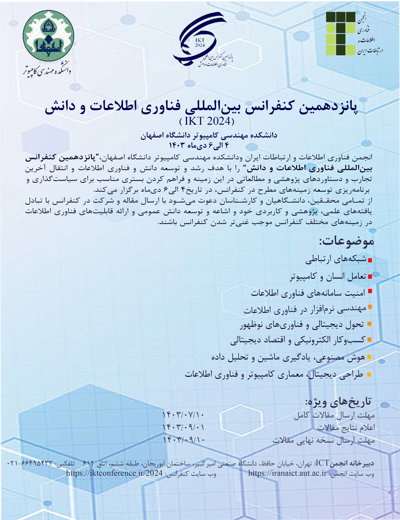0% Complete

نویسندگان :
کلمات کلیدی :
چکیده :
لیست مقالات بایگانی شده
الهام صالحی - دکتر محمدرضا کرمی ملایی - دکتر حسام عمرانپور الهام صالحی - محمدرضا کرمی ملایی - حسام عمرانپور -
Mohammadreza Gholipour Shahraki - Mehdi Rezaeian - Mohammad Ghasemzadeh
کبری فرشیدی - حسن ختنلو - محرم منصوری زاده - الهام علی قارداش
Fatemeh Rabbani - Dr Behrooz Masoumi - Dr Mohammad Reza Keyvanpour
ٍElham Alighardash - Dr Hassan Khotanlou - Vahid Pour Amin
سحر فقیهی راد - دکتر سیده نفیسه آل محمد سحر فقیهی راد - سیده نفیسه آل محمد -
محسن اکبری - دکتر مریم مؤمنی محسن اکبری - مریم مؤمنی -
رسول سامانی - فهیمه شاهرخ شهرکی - دکتر ناصر قدیری رسول سامانی - فهیمه شاهرخ شهرکی - ناصر قدیری -
Rojan Roshankar - Mohammad Reza Keyvanpour
نبیل الراشدی - رسول صادقی - وائل حسین اللامی - مهدی حمیدخانی





